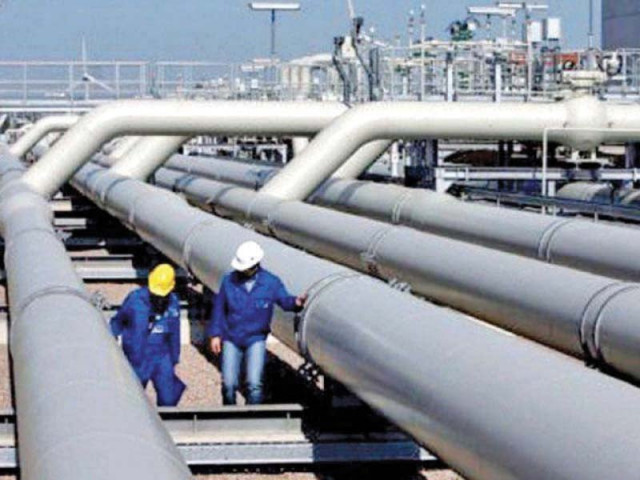High energy cost: Gas price effect will not be massive, says CEO Engro Fertilizers
Says it is premature to quantify increase and its impact on industry.

Engro Fertilizers is getting fuel gas at about $4.20 per mmbtu, while the rate at which it gets feed gas is about $6.25 per mmbtu. STOCK IMAGE
The proposed increase in gas prices may not affect the fertiliser sector as much as it is being assumed, said Engro Fertilizers Chief Executive Officer Ruhail Muhammad.
“The percentage of the proposed increase in gas prices is high, but it is not that big in absolute terms,” said Ruhail in an interview with The Express Tribune.
Since the emergence of reports on March 10, which indicated that the government has assured the International Monetary Fund about rationalising gas prices from April 15, the fertiliser sector has been under pressure on the Karachi Stock Exchange.
The sector, which remained the star performer since the turn of the year – up over 12.6% in the first two and a half months of calendar year 2015, has failed to outpace the broader market since March 10, reported AKD Research recently.
However, despite all the negativity regarding the margin erosion due to the gas price hike, the increase in input cost is likely to be passed on to the end-consumer, added the report.
“Nobody knows the quantum of increase as it is not finalised yet,” he said, adding “it will be premature to say how much it would affect the industry.”
Right now, Engro Fertilizers is getting fuel gas at about $4.20 per mmbtu, while the rate at which it gets feed gas is about $6.25 per mmbtu.
Top industry officials, whether they are from the fertiliser or other industries, believe that the government will eventually raise the gas price. They know it is just a matter of time, but they expect it to be low as it will also affect the overall industrial output of the country.
Speaking on the challenges to the fertiliser industry, the Engro Fertilizers chief added that since the industry heavily depends on indigenous gas resources that are limited, the availability of gas to fertiliser plants will remain a big issue in Pakistan.
“Gas reserves are limited and you cannot run this industry on expensive imported gas,” he said. “On the other hand, the conversion of plants to coal is also a very expensive option.”
Secondly, any slump in international urea prices may also hurt the local fertiliser industry, he added. For instance, international urea prices hover around $360 per ton (including the cost of transportation from port to the market), while local urea prices stand around $300 per ton.
“If this current difference of about $60 per ton shrinks, it will erode the cost advantage of the local industry and make urea imports much easier,” he added.
China, the largest urea producer in Asia, has a big local urea production base and is exporting a large quantity in recent years due to low international coal prices – the main raw material that it uses in urea production.
Entering pesticide business
Engro Fertilizers wants to market pesticides in the country.
“Yes, we want to explore the pesticide business by utilising our sales team which is already on the ground to meet urea requirements of the farmers,” said Ruhail, explaining why the company wants to enter the pesticide business.
Published in The Express Tribune, March 26th, 2015.
Like Business on Facebook, follow @TribuneBiz on Twitter to stay informed and join in the conversation.



















COMMENTS
Comments are moderated and generally will be posted if they are on-topic and not abusive.
For more information, please see our Comments FAQ